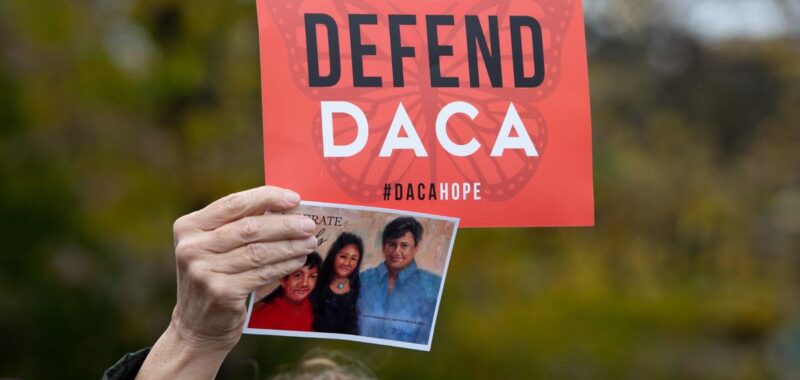Washington — A federal appeals court on Friday declared the Deferred Action for Childhood Arrivals immigration policy unlawful, casting a cloud of uncertainty over more than half a million unauthorized immigrants brought to the U.S. as children ahead of President-elect Donald Trump’s inauguration.
A panel of judges before the U.S. Court of Appeals for the 5th Circuit upheld a lower court ruling that found a Biden administration rule to codify DACA violated U.S. immigration law. The 2012 Obama administration memo that originally created the policy has also been found to be unlawful by federal courts.
For more than 12 years, DACA has allowed hundreds of thousands of immigrants who crossed into the U.S. illegally or overstayed their visas as minors to live and work in the U.S., without fear of deportation. They are colloquially known as “Dreamers,” a moniker stemming from the Dream Act, a bipartisan effort to legalize them that Congress has considered, but failed to pass, for over two decades.
While it affirmed the lower court order that voided the Biden administration’s regulation, the panel narrowed the ruling’s impact, making it applicable only in Texas, the state spearheading the Republican-led lawsuit against DACA. The panel paused its ruling as it relates to current DACA beneficiaries, pending another court ruling by the 5th Circuit or the Supreme Court, allowing renewals to continue.
The panel also ruled that the deportation protections offered by DACA could be legally separated from the work permits that beneficiaries receive.
As of the end of September 2024, there were roughly 538,000 immigrants enrolled in DACA, according to U.S. Citizenship and Immigration Services, the agency that oversees the initiative. To qualify for the policy, applicants had to establish they arrived in the U.S. by their 16th birthday and before June 2007; graduated from an American high school or enrolled in the military; and lacked any serious criminal records.
Friday’s ruling could pave the way for the U.S. Supreme Court to finally settle the years-long legal battle over DACA. But it’s unclear how the incoming Trump administration will handle the case and whether it will try to terminate the program. While President Biden’s Justice Department has vigorously defended DACA in court, the first Trump administration tried phasing out the policy, arguing it was unlawful. The Supreme Court in 2020 prevented DACA’s termination on technical grounds.
Spokespeople for the Departments of Justice and Homeland Security did not immediately respond to requests for comment. The Trump transition team similarly did not immediately say how the incoming administration would approach DACA.

